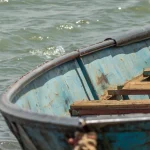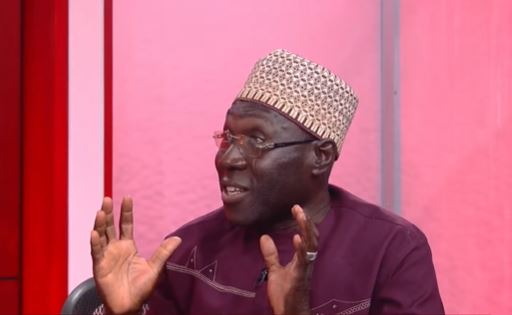Few emerging-market currencies have been spared as the spread of the coronavirus causes investors to dump riskier assets and the dollar to surge. But Africa has been hit harder than most — and the signs are there’s worse to come.
Four of the seven worst-performing currencies globally are from the continent in the past four days, a period when the MSCI benchmark for emerging market currencies was climbing.
Kenya’s shilling, Angola’s kwanza and Zambia’s kwacha have all fallen to record lows this month. Ghana’s cedi and South Africa’s rand are close to that point. And while Nigeria’s already devalued the naira, most investors say it’ll have to do so again. Egypt’s pound, meanwhile, is up against the dollar this year but increasingly overvalued, according to investors.
Many countries, including Ghana, Egypt, Kenya and South Africa, have cut interest rates to support their economies, which will be hit by lockdowns, factory closures and a slump in tourism as well as lower demand for their exports. The monetary easing and the fiscal stimulus some governments have promised alongside it could add to the pain for their currencies.
“We will see more losses,” Courage Martey, an economist at Databank Group Ltd. in Accra, Ghana’s capital, said. “Most of these currencies depend on commodity exports. Measures to safeguard growth such as interest-rate cuts and reduction in commercial banks’ reserves will initially reduce demand for local assets.”
Here’s the outlook for some of the continent’s key currencies:
Angola
The Angolan kwanza has already weakened 8.8% this month against the dollar. The central bank of Africa’s biggest oil producer after Nigeria may have to let it drop further, given the crash in crude prices to barely $25 a barrel. The pressure on the currency means there’s a chance Angola goes against the global trend of easing and raises rates at its next Monetary Policy Committee meeting on March 27, according to analysts at Standard Bank Group Ltd.
Foreign-currency shortages are already getting worse. The kwanza’s black-market rate has fallen to 650 against the dollar, almost 20% weaker than the official rate of about 535.
The central bank’s “major concern will be to seek to maintain kwanza stability,” Precioso Domingos, an economist at the Catholic University of Angola, said.
Egypt
The Egyptian pound has been resilient in the face of mass outflows from emerging markets over the past month. It’s the world’s strongest currency this year after Myanmar’s, and has gained 2.1% versus the dollar. But it’s becoming more overvalued, meaning a fall may be only a matter of time. Morgan Stanley analysts Jaiparan Khurana and James Lord said on March 17 that investors should reduce their exposure to Egyptian-pound bonds because the currency was no longer cheap, especially considering the central bank has cut interest rates by 650 basis points since July. As of 3:38 p.m. in Cairo the currency was little changed at 15.7512 per dollar.
Ghana
By mid-February, Ghana’s cedi was the world’s best-performing currency in 2020, up more than 7% against the dollar. It’s now reversed all those gains and dipped close to it weakest level on record this week. The central bank cut its policy rate on March 18 by 150 basis points to 14.5%, the lowest in eight years, and slashed banks’ reserve ratios to keep credit flowing.
The government has asked the International Monetary Fund and World Bank for funding to counter the fallout from the virus. If that money comes, it may go some way toward calming investors who are nervous about the currency and the country’s debt. Goldman Sachs Group Inc. said Ghana is one of the most vulnerable nations among oil exporters.
Kenya
The Kenyan shilling was one of Africa’s most stable currencies, until recently. It reached a record low this week and while it’s recovered in the past two days, it’s still down 3.6% this year. It could come under further pressure, with real interest rates barely above 1% following the central bank’s cut on March 23. The regulator also almost halved its economic growth forecast to 3.4% for this year, while the government announced sweeping tax cuts to back the expansionary monetary stance. It’s in talks with the World Bank and IMF for funding, to the tune of about $1.1 billion.
Nigeria
Nigeria devalued the naira’s official exchange rate and another used by foreign investors last week as the fall in oil prices ramped up pressure on the currency. But it’s maintaining a system of multiple rates for now. Some analysts say it hasn’t gone far enough, with the investor rate being weakened about 4% to 380 per dollar. Other oil currencies such as the Russian ruble and Colombian peso have depreciated almost 14% in March. Goldman reckons it would take an exchange rate of 600 for the naira to be stable at today’s oil prices.
South Africa
The central bank’s announcement that it will purchase government bonds in the secondary market led the rand and South African debt to rally on Wednesday. But the currency’s gains were all but wiped out on Thursday as investors turned their attention back to the government’s weak balance sheet, which the virus and a lockdown to combat it may worsen. The rand could also take a hit next week if Moody’s Investors Service downgrades the country to junk on Friday, when it’s scheduled to release an assessment after local markets have closed. That would lead to South Africa losing its last investment-grade rating and being excluded from the FTSE World Government Bond Indexes, which have about $3 trillion of funds tracking them.
Zambia
The Zambian kwacha is the worst-performing currency in Africa this year, losing more than 20% against the dollar. The country’s been hurt by falling copper prices and drought. Its foreign reserves fell to $1.3 billion in January, around the lowest level on record. The government’s Eurobond yields have also soared to a point that suggests many investors are pricing in a default.
A debt restructuring is almost inevitable if the government doesn’t negotiate a bailout loan from the IMF, said Irmgard Erasmus of NKC African Economics, based in Paarl, near Cape Town.
















